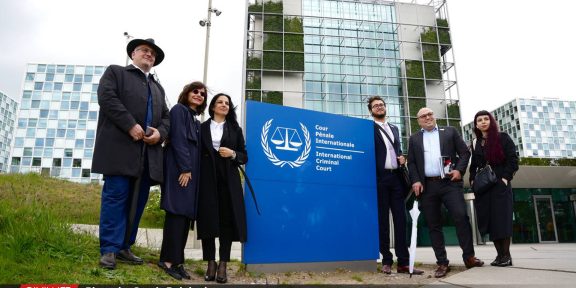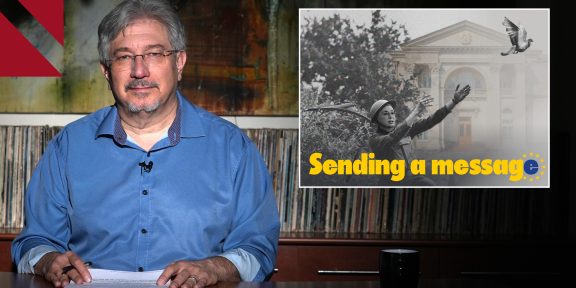By Mark Dovich
“‘Moscow considers official Yerevan’s plans to join the Rome Statute of the International Criminal Court absolutely unacceptable.’” That is according to an unnamed source in Russia’s Foreign Ministry cited Monday by TASS, the country’s state-run news agency.
The source added that Russia had warned Armenia about “extremely negative” consequences if Armenia joins the Hague-based court, which issued an arrest warrant for Russian President Vladimir Putin earlier this month for his conduct in Ukraine.
Earlier in the day, Moscow reported a meeting between Russian Deputy Foreign Minister Mikhail Galuzin and Vagharshak Harutyunyan, Armenia’s ambassador to Russia. A brief read-out said the officials reviewed “selected issues on the bilateral agenda” without elaborating. It is unclear if Armenia’s moves to join the ICC were discussed.
Late last week, Armenia’s Constitutional Court overturned an earlier decision to find that the Rome Statute, the treaty that established the ICC, complies with Armenia’s constitution, paving the way for the country to join the court — and raising the possibility that Putin may be effectively banned from Armenia.
Armenia’s National Assembly must vote to ratify the treaty before the country can join the ICC. Lawmakers from the ruling Civil Contract party and the opposition Armenia and I Have Honor blocs have not indicated publicly how they may vote, nor have they said when such a vote could be expected.
Armenia signed the Rome Statute in 1999 but put ratification on indefinite hold after the country’s Constitutional Court ruled in 2004 that the treaty was unconstitutional. Armenian Prime Minister Nikol Pashinyan’s administration restarted the ratification process late last year — months before the ICC issued its arrest warrant for Putin — citing the “risk of new Azerbaijani military aggression against Armenia.”
Russia has responded furiously to the ICC’s decision last month to issue arrest warrants for Putin and his children’s commissioner, Maria Lvova-Belova, calling them “legally null and void.” The court cited “reasonable grounds” to believe Putin and Lvova-Belova were involved in the “unlawful deportation” of tens of thousands of Ukrainian children to Russia.
The warrants could dramatically limit Putin’s ability to travel outside of Russia, with the ICC’s 100-plus member countries around the world expected to comply with the court’s arrest order if Putin visits. Importantly, though, the court has no powers to force members to act on the warrant.
The ICC does not grant immunity to heads of government, but member South Africa set a significant precedent in 2015 by refusing to comply with the court’s arrest order for longtime Sudanese President Omar al-Bashir, citing his position.
Armenia’s moves to join the ICC come amid fraying ties with Russia, with frustration mounting in Yerevan over Moscow’s inability or unwillingness to fully uphold the 2020 ceasefire it brokered to end the war in Nagorno-Karabakh.
Over the weekend, Russia’s peacekeepers in Nagorno-Karabakh issued a rare rebuke of Azerbaijan for violating the ceasefire by advancing beyond the line of contact established at the end of the war. However, Moscow has so far not proven successful in compelling Baku to withdraw its forces to their previous positions.
Likewise, the Russian peacekeepers have laid blame for the ongoing blockade of Nagorno-Karabakh squarely on Azerbaijan, but have not been able to pressure Baku into lifting it. The blockade is now in its fourth month, prompting severe shortages of food, medicine, and energy across Nagorno-Karabakh.
Last month, the International Court of Justice — a separate body from the ICC — ordered Azerbaijan to end the blockade. The ruling is legally binding, but the court has no enforcement powers.
Moscow’s unusually stern warning for Yerevan over possible ICC membership comes amid escalating tensions in Nagorno-Karabakh, with Baku, Stepanakert, and Yerevan all reporting substantial upticks in ceasefire violations in the region.
The Russian peacekeepers in Nagorno-Karabakh have reported more ceasefire violations so far this month than they did in all of 2021 and 2022 combined, according to a tally kept by Nagorno Karabakh Observer, an independent Twitter account.
















